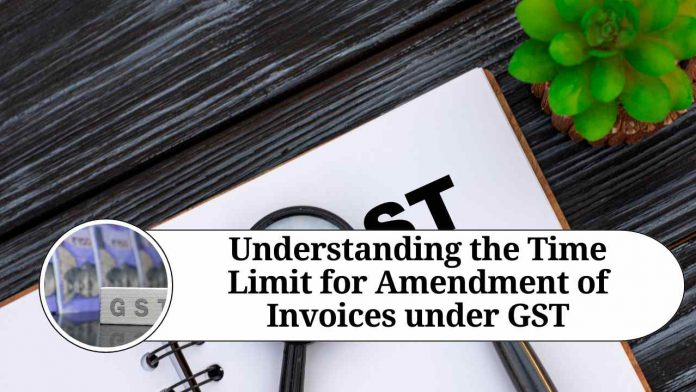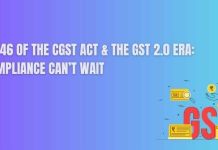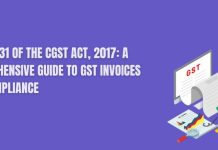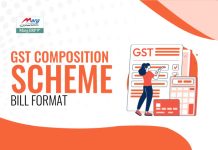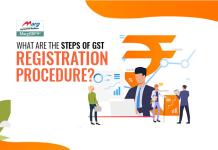However, there may be situations where a supplier needs to amend an invoice after it has been issued. For instance, there could be errors in the invoice, or the buyer might have requested changes to the original invoice. In such cases, it is important to know the time limit for the amendment of invoices under GST.
Time Limit for Amendment of Invoice under GST
According to the GST laws, a supplier can amend an invoice within a specified time limit. The time limit for the amendment of an invoice depends on the type of amendment required. There are two types of amendments that a supplier can make:
Amendment in taxable value or GST rate: If a supplier needs to make changes to the taxable value or GST rate on an invoice, they can do so within the earlier of the following dates:
- The date of filing of the GST return for September following the end of the financial year in which the supply was made, or
- The date of filing of the annual return for the financial year in which the supply was made.
For instance, if a supplier issued an invoice on 1st July 2022, for a supply made in the financial year 2022-23, they can make changes to the taxable value or GST rate on the invoice until the earlier of the following dates:
- The date of filing of the GST return for September 2023, or
- The date of filing of the annual return for the financial year 2022-23.
- Other amendments: If a supplier needs to make any other amendments to an invoice (e.g. change in buyer’s name or address, or adding or deleting items from the invoice), they can do so within the earlier of the following dates:
- The date of filing of the GST return for September following the end of the financial year in which the supply was made, or
- The date of filing of the GST returns for September following the date of issuance of the original invoice.
For instance, if a supplier issued an invoice on 1st July 2022, for a supply made in the financial year 2022-23, they can make other amendments to the invoice until the earlier of the following dates:
- The date of filing of the GST return for September 2023, or
- The date of filing of the GST returns for September 2022.
It is important to note that the time limit for the amendment of an invoice cannot be extended under any circumstances. Therefore, suppliers must ensure that they make any necessary amendments within the prescribed time limit.
Consequences of Non-Compliance with the Time Limit for Amendment of Invoice
If a supplier fails to amend an invoice within the prescribed time limit, they may face penalties and interest charges. The amount of penalty and interest charges may vary depending on the nature and severity of the non-compliance.
The GST laws have made it mandatory for suppliers to issue invoices for every supply of goods or services. The invoice must contain certain details such as the name and address of the supplier, the name and address of the buyer, the GSTIN of both parties, a description of the goods or services supplied, the quantity and value of the goods or services supplied, and the applicable GST rate and tax amount.
However, there may be situations where a supplier needs to amend an invoice after it has been issued. The amendment may be required due to errors or changes requested by the buyer. In such cases, suppliers need to know the time limit for the amendment of invoices under GST.
The time limit for amendment of an invoice under GST is prescribed to ensure that the GST returns filed by the supplier are accurate and reflect the correct amount of tax liability. The time limit for the amendment of an invoice varies depending on the type of amendment required.
For instance, if a supplier needs to make changes to the taxable value or GST rate on an invoice, they can do so until the earlier of the following dates:
- The date of filing of the GST return for September following the end of the financial year in which the supply was made, or
- The date of filing of the annual return for the financial year in which the supply was made.
On the other hand, if a supplier needs to make any other amendments to an invoice, they can do so until the earlier of the following dates:
- The date of filing of the GST return for September following the end of the financial year in which the supply was made, or
- The date of filing of the GST returns for September following the date of issuance of the original invoice.
Suppliers need to ensure that they make any necessary amendments within the prescribed time limit. Failure to comply with the time limit for amendment of an invoice may result in penalties and interest charges.
Moreover, if the buyer wants to claim an input tax credit (ITC) on the amended invoice, they must ensure that the supplier has made the necessary amendments within the prescribed time limit. If the supplier fails to make the amendments within the prescribed time limit, the buyer may not be able to claim ITC on the amended invoice.
Final Conclusion
In conclusion, the time limit for the amendment of an invoice under GST is an important aspect that suppliers must comply with. Suppliers must understand the different types of amendments and the corresponding time limits to ensure compliance with the GST laws. Failure to comply with the time limit for amendment of an invoice may result in penalties and interest charges. Therefore, suppliers should exercise due diligence and ensure that their invoices are accurate and compliant with the GST laws.
Other Related Blogs: Section 144B Income Tax Act
Frequently Asked Questions:
Q: What is the time limit for amending an invoice under GST?
A: The time limit for amending an invoice under GST varies depending on the type of amendment required. If a supplier needs to make changes to the taxable value or GST rate on an invoice, they can do so until the earlier the date of filing of the GST return for September following the end of the financial year in which the supply was made, or the date of filing of the annual return for the financial year in which the supply was made.
Q: Can an invoice be amended after the time limit prescribed under GST?
A: An invoice cannot be amended after the time limit prescribed under GST. Suppliers need to ensure that they make any necessary amendments within the prescribed time limit. Failure to comply with the time limit for amendment of an invoice may result in penalties and interest charges.
Q: What happens if a supplier fails to make necessary amendments within the prescribed time limit?
A: If a supplier fails to make necessary amendments within the prescribed time limit, the buyer may be unable to claim an input tax credit (ITC) on the amended invoice. Additionally, the supplier may face penalties and interest charges for non-compliance with the GST laws.
Q: Can a buyer claim input tax credit (ITC) on an amended invoice?
A: A buyer can claim an input tax credit (ITC) on an amended invoice only if the supplier has made the necessary amendments within the prescribed time limit. If the supplier fails to make the amendments within the prescribed time limit, the buyer may not be able to claim ITC on the amended invoice.

